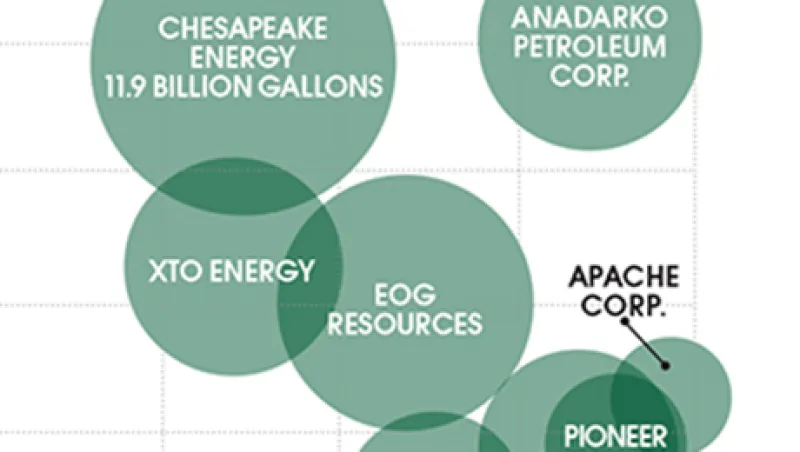Big institutional investors care deeply about their portfolio companies’ drilling habits. London-based investor network Principles for Responsible Investment found that out recently when it kicked off an initiative to improve the oil and gas industry’s disclosure around hydraulic fracturing.
In the eight years since PRI launched, the United Nations–backed group has never seen more investor interest in a single topic. As of last month 39 institutions, representing some $6 trillion in assets, had pledged to talk with portfolio companies that practice fracking, a controversial method of extracting natural gas that involves breaking up shale rock by injecting liquid far underground.
“There’s so much unknown about fracking, and there are so many concerns about its safety,” says PRI managing director Fiona Reynolds. “There’s been an explosion in fracking recently, particularly in the U.S., and I think that’s why there’s been such a great interest.”
For participants the PRI effort is tapping a curiosity about fracking’s risks to the environment — the process has been linked to chemical contamination of groundwater, methane leaks and excessive water usage — and risks to its practitioners, given potential blows to their reputations and share prices. In late 2012, €158 billion ($219 billion) Dutch asset manager PGGM sent several representatives to Texas and Oklahoma for tours of the shale gas wells of Royal Dutch Shell and other major energy players in the firm’s portfolio. “Like other investors, we were caught on the back foot with the shale gas boom in the U.S., and the first thing we wanted to understand was what was happening there,” says Piet Klop, senior adviser for responsible investment at PGGM, which manages the assets of seven Dutch pension funds from its offices in the central Netherlands town of Zeist.
Boston Common Asset Management, another signatory of the PRI initiative, got an earlier start. In July 2010 the Boston-based socially responsible–investment manager began a series of roundtable discussions that saw it and firms such as Morgan Stanley and T. Rowe Price chat with engineers from Houston-based oil and gas explorer Apache Corp. and other companies. Steven Heim, $2.1 billion Boston Common’s director of environmental, social and governance research and shareholder engagement, says he organized the meetings to share information about how fracking works and investor concerns over lack of transparency.
In 2010 the $183 billion California State Teachers’ Retirement System started sending letters to portfolio companies with fracking operations to set up conversations about risk management and safety procedures, says Brian Rice, portfolio manager and lead investment officer on sustainability issues in the corporate governance department. Sacramento-based CalSTRS followed up last year, when Rice and his colleagues noticed a spate of stories about fracking’s environmental dangers. Now the second-largest U.S. pension fund has signed on to the PRI engagement. “This won’t go away for us any time soon,” Rice says.
Targeting 37 companies, the PRI program will focus on the disclosure of fracking-related risks in the areas of governance, water quality and use, air quality and community relations. For the first 18 months, investors will gather information. After that, PRI and its partners will conduct new analysis to see if transparency has improved and decide what action to take, managing director Reynolds says.
Several recent studies conclude that disclosure by companies involved in fracking is inadequate. In a March report on water management by shale energy producers, French bank Société Générale found that “overall, there is poor industry performance on water disclosure.” Last September, London-based corporate responsibility research firm AccountAbility published a PRI-commissioned examination of reporting by 56 publicly traded oil and gas companies with exposure to fracking. Companies scored an average of 21 percent on best-practices indicators designed by the authors.
Although PRI leaves it up to investors to make any portfolio tweaks, excluding companies or reducing stakes in them for inadequate disclosure is on the table, PGGM’s Klop says. “The next step is engagement as an improvement effort,” he explains. “If that fails, we’ve got ways to get rid of companies that are laggards.” • •
Get more on investors.






